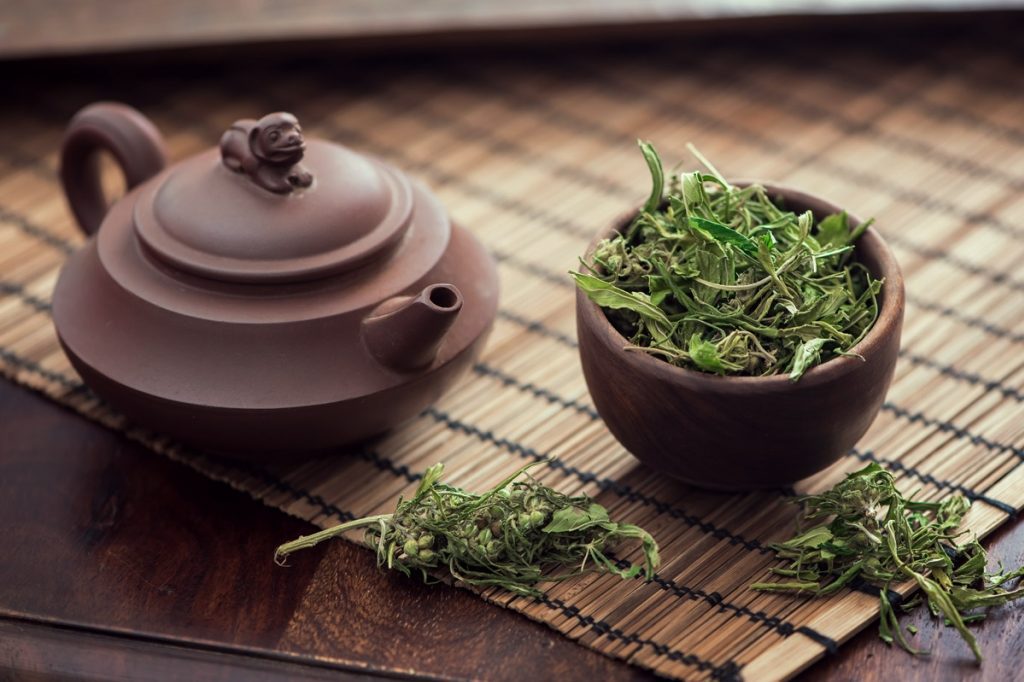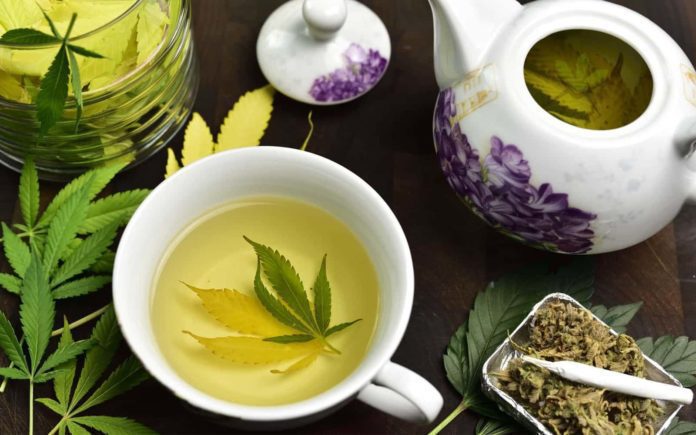Knowing that there are risks associated with smoking weed, you may be on the lookout for a healthier alternative. If you want to reap the benefits of cannabis, then one good way to consume it is by drinking it in tea form.
Drinking cannabis tea gives you the liberty to easily get your desired dose. Also, cannabis-infused tea allows you to reap greater medicinal benefits of the plant without getting too high.
In this article, we have put together everything you should know about cannabis tea. If you want to drink your way to marijuana goodness, here’s your complete guide.
Below listed benefits are based on research and anecdotal evidence.
1) Reduces chronic pain
Patients suffering from cancer-associated pain, central pain, neuropathic pain experience more difficulties since such conditions are often resistant to anti-pain medications. And this is why people suffering from chronic pain consume cannabis.
The brain’s endocannabinoid system reacts to cannabis’ THC and CBD content. These two main cannabinoids bind to the receptors in the central nervous system, and as a result—blocks pain effectively. With cannabis tea, it can provide extended pain relief without the common side effects associated with conventional pain killers.
2) Relieves anxiety and depression
Neuronal inflammation is one of the leading causes of anxiety and depression. The ability of cannabis to interact with the endocannabinoid system may produce stress-relieving benefits. It can help reduce brain inflammation due to its antioxidant properties that helps repair damaged brain cells.
Both THC and CBD were proven to have a calming, sedating, and soothing effects. These effects can greatly help in reducing anxiety and depression. Cannabis tea combined with green tea is a good concoction to improve your mood and behavior.
However, it’s better not to experiment beyond mixing it with green tea—and dose properly. Since true teas contain caffeine which may magnify the effect of THC. Although all true tea comes from the Camellia sinensis plant, the difference between green tea and black tea is that green tea is oxidized while black tea isn’t. Black tea contains relatively higher caffeine content too.
3) Improves lung health
Smoking weed can cause great risk to your lung health, but drinking cannabis tea won’t. On the contrary, it can improve your lung function due to its bronchodilator properties. Therefore, cannabis can improve the flow of air in the lungs since it decreases airway resistance.
Researchers also found that when THC is consumed in tea form, it helps reduce tumor growth of about 50% in lung cancer. It also decreased the chance of cancer to metastasize.
4) Supports heart health
The cannabinoids content of cannabis, based on a recent study, shows that it can relax the arteries making their diameter to widen. As a result, this leads to improved circulation and lower blood pressure.
Marijuana also reduces LDL or “bad” cholesterol and triglycerides. While it increases HDL or the “good” cholesterol.
5) Aids digestive problems
The endocannabinoid system is also found in the digestive tract. Thus, drinking cannabis tea may provide quick relief with many digestive problems. It can aid cramps, constipation, diarrhea, and even acid reflux.
6) Has anti-inflammatory properties
Cannabis has potent anti-inflammatory properties thereby helping conditions due to overactive immune response. Drinking cannabis tea may help those suffering from conditions such as multiple sclerosis, IBS, and arthritis.
7) Prevents cognitive decline
THC has been shown to block or slow down a type of protein which plays a role in the occurrence of Alzheimer’s disease. Research preliminary results also show that it can help with better memory retention.
The structure
Cannabis Indica and Cannabis Sativa are the two main subspecies of this plant. Sativa-dominant cannabis strains are relatively taller and have thinner leaves with a pale green color, but it has higher THC content. While Indica-dominant cannabis strains are short plants, but with broad, dark green leaves, and higher cannabidiol content compared to Sativa strains.
The four mainly researched compounds of cannabis are d-9-THC, d-8-THC, CBD, and cannabinol. When it is dried, stored and heated—cannabis’ accumulated cannabinoid acids are decarboxylated gradually into proper forms. These four major compounds have similar chemical structures but with different pharmacological effects.
It isn’t difficult to prepare your marijuana tea. You can simply simmer some buds together with butter or oil on low heat for around 30 minutes. Depending on your preferred strength, you may use buds for strong infusion and leaves or stems for a weaker brew.

Medical effect of cannabis
Cannabis tea consumption may have a range of physical and mental effects. These effects depend on the dose, your prior experience, any concurrent drug use, mood and environment in which it is consumed.
Especially for those consuming in high doses, the following physical and mental effects may include:
- nausea and vomiting
- dehydration
- temporary hallucinations
- temporary paranoia
- disorganized thinking
- euphoria
- increased pulse and heart rate
- bloodshot eyes and dilated pupils
- increased appetite
- Chemotherapy or cancer treatments
- HIV/AIDS
- IBD
- Multiple sclerosis
- Muscle spasms
- Neuropathy
- Parkinson’s disease
- PSTD
- Seizures (epilepsy)
Since cannabis remains a federal DEA Schedule 1 controlled substance, make sure you know your state law or where to consume it legally. If medicating, have your medical marijuana card around. Below are the common uses of medical marijuana.
